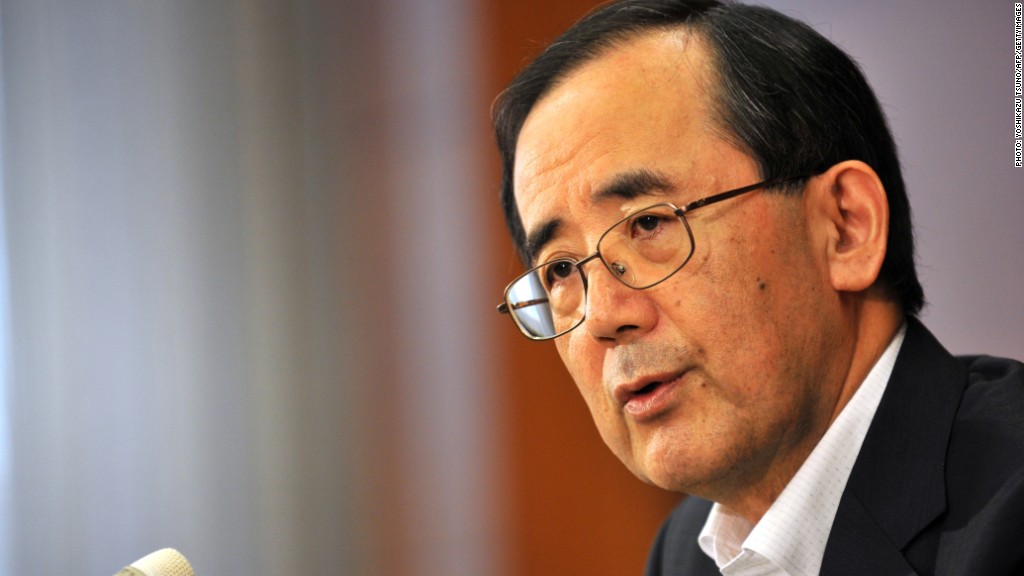
The Bank of Japan announced Tuesday that it would expand its asset purchase program by 11 trillion yen in an effort to stimulate its economy.
The central bank said it would ramp up its current bond buying program from 80 trillion yen to about 91 trillion yen, a difference of $138 billion.
The purchases -- which include T-bills and government bonds -- will be completed by the end of 2013. The vote to ease monetary policy was unanimous, the bank noted. Key interest rates were left unchanged.
Investors were not much impressed by Tuesday's announcement, and the Nikkei dropped almost 1% in afternoon trading.
In explaining its rationale for more easing, the central bank cited the significant economic challenges posed by Europe's debt crisis, a lack of momentum in the U.S. economy and diplomatic tensions with China. The bump in asset purchases follows a similar move in September, when the bank expanded its program by 10 trillion yen.
Japan is not the only country to ease its monetary policy in recent months. The U.S. Federal Reserve announced its latest stimulus plan in September. The European Central Bank, meanwhile, is embarking on a new bond-buying program of its own.
The Fed's policy, known as quantitative easing and often abbreviated as QE3, entails buying $40 billion in mortgage-backed securities each month. The end date remains up in the air, as the Fed will re-evaluate the strength of the economy in coming months.


